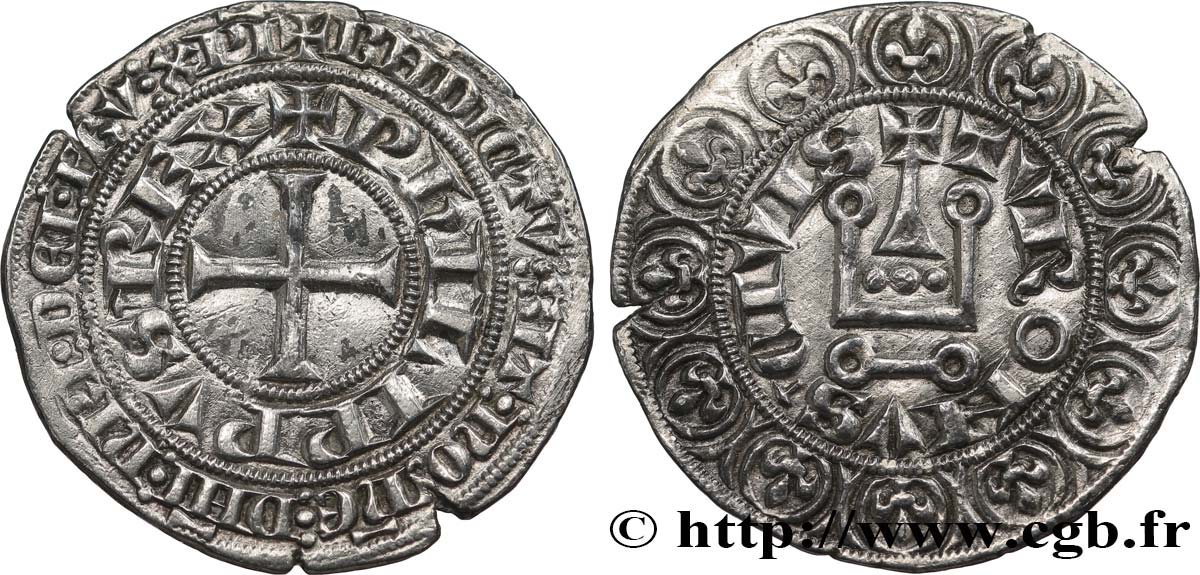Лицевая сторона
Аверс: легенда: + PHILIPPVS (MARTEAU) REX ; LÉGENDE EXTÉRIEURE : + BHDICTV: SIT: NOME: DHI: NRI: DEI: IHV: XPI, (PONCTUATION PAR TROIS BESANTS SUPERPOSÉS).
Аверс: описание: Croix.
Аверс: перевод: (Philippe roi ; béni soit le nom de notre Seigneur).
Обратная сторона
Реверс: легенда: + TVRONVS (MARTEAU) CIVIS.
Реверс: Описание: Châtel tournois sommé d'une croisette coupant la légende à 12 heures ; bordure extérieure de douze lis dans des oves.
Реверс: перевод: (Cité de Tours).
Историческая справка
PHILIP V "THE TALL"
(19/11/1316-3/01/1322)
Born in 1294, Philip V was the second son of Philip IV and Joan of Navarre. Philippe, Count of Poitiers, was first regent while awaiting the birth of the son of Clemence of Hungary. By a treaty signed in Paris in September 1316, he settled the affairs of Flanders, ensured the election of the pope and forced Robert d'Artois into submission.. Jean I having died in November 1316, Philippe was crowned in Reims in January 1317, despite some resistance from the nobility, notably that of the Duke of Burgundy.. The Count of Rethel, Louis de Nevers, sided with Princess Jeanne, daughter of Louis X, and entered Champagne. In Artois, Mahaut's enemies resumed the fight. But Nevers submitted in November 1317. In March 1318, an agreement was concluded with the Duke of Burgundy: he would marry a daughter of Philippe V, Jeanne, who would inherit the counties of Artois and Burgundy. Jeanne, daughter of Louis X, would keep Navarre, and marry Philippe d'Évreux. In March 1317, a meeting of the prosecutors of the towns of Langue d'oil was held in Paris. They dealt with public order and the reorganization of the military institutions of the cities.. In March, in Bourges, another assembly of the towns of Langue d'Oc took care of financial questions. Assemblies of towns, prelates and barons were repeated in 1318, 1319 and 1320, apparently dealing with monetary matters. They served above all to reinforce the legitimacy of the new king.. On his death, which occurred in January 1322, his brother Charles de la Marche succeeded him without difficulty..








 Cообщить об ошибке
Cообщить об ошибке Распечатать страницу
Распечатать страницу Отправить мой выбор
Отправить мой выбор Задать вопрос
Задать вопрос Consign / sell
Consign / sell




